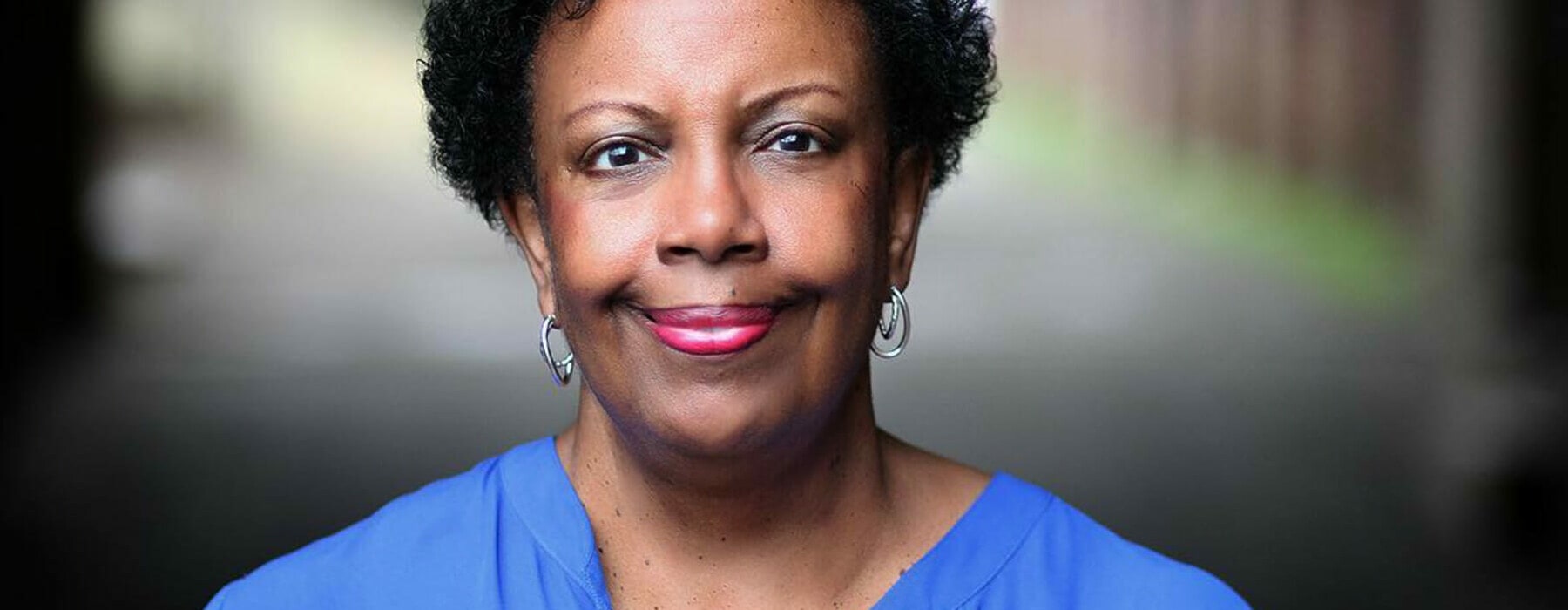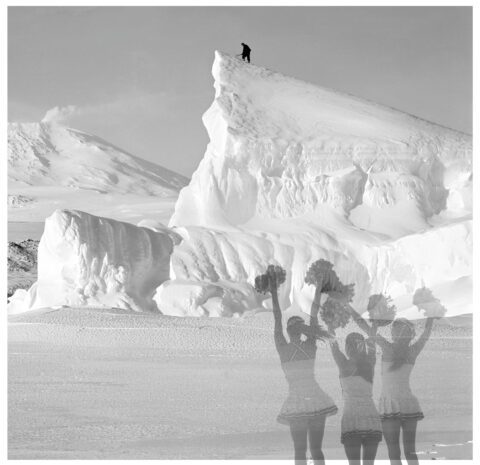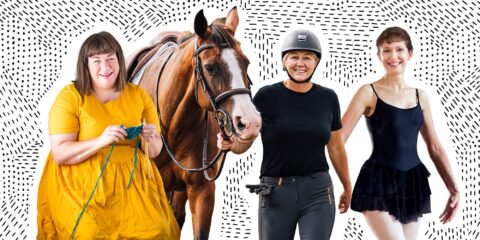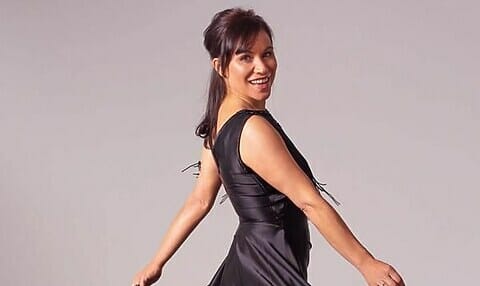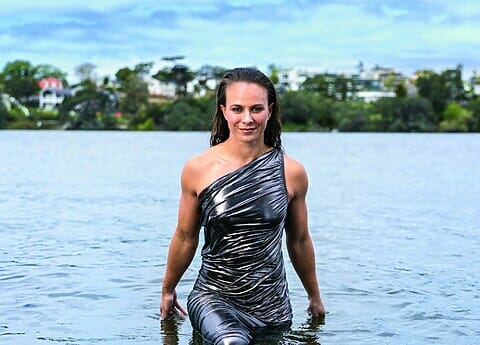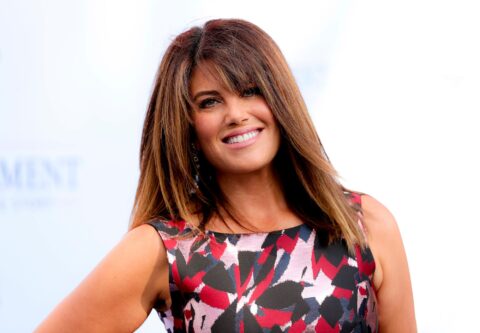For many years, Susan Dansby was the only Black woman writing and directing US soap operas such as The Young and the Restless and Guiding Light. In a first ever interview Aroha Awarau talks to her about how she survived working in an industry that catered to the whitest of whites.
I first met pioneer TV creator Susan Dansby, an African American soap opera writer, and seven-time Emmy award winner, in New York while lining up to see Whoopi Goldberg and the women of the talk show The View in 2017.
As a child of the eighties, I grew up in Taranaki watching daytime soap operas like Days of our Lives and Santa Barbara, with their twisted and outrageous storylines. I was honoured to have met and befriended a pioneer in the world of soap operas and was intrigued that she was the lone minority voice in this industry for many years. I was also surprised that she had never given an interview about her experience as a recognised and multiple award-winning TV writer – until now.
“I was the first Black woman to work in the production of daytime soaps on three major networks. Did I see myself as a pioneer? Well, that’s not what it felt like. At the time, it felt like ‘when can I get my next job?’ There was no method to my madness,” explains Susan.
“When you’re the minority, you’ve got to come with a game plan. You have to be the best of the best because you will not get a second chance. If you’re mediocre, you’re out of there.”
Susan was born and raised in Atlanta, Georgia. Her father was a real estate broker and her mother worked in the post office. Susan was an only child and her parents instilled in her the value of hard work and sheltered and protected her from the racist behaviour prevalent in the deep south in the sixties.
“Racism, and anything like that, didn’t play into my day-to-day life. I grew up in a Black neighborhood, I never ran into anything like that. When I was in junior high school I transferred to an integrated school across town. That opened up a whole new world.”
At 16, during a school trip to New York City, Susan fell in love with Broadway and theatre and decided that she wanted to become a director. As a child, she would also write fan letters to her favourite actors, like Sally Field, who was on TV’s Gidget at the time, and Elizabeth Montgomery on Bewitched.
“I was thrilled when they would send me a picture of themselves – and it was autographed!” she says.
Susan moved to Pittsburgh, Pennsylvania to study at Carnegie-Mellon University, an institution renowned for its theatre program, and gained a Bachelor of Arts in directing. At 25 she moved to New York City and worked in theatre. She struggled to make money and survive in the theatre industry and decided to transition into directing for TV.
“There had to be a way for me to direct and make money, and I decided TV was the way. There were eight soap operas being filmed in New York City at the time, and I thought I will pursue working on one of these shows.”
But finding a job as a director for a Black woman on soap operas was difficult. The only job that Susan could find in the industry was in the production office of the soap opera, Guiding Light. She was disappointed about having to work in the office, as she would see her male counterparts, who were just as experienced as her, being offered directing opportunities.
“There were at least three men that I studied with. They didn’t have to begin anywhere except as observing as a director and then sitting in the director’s chair. I was told, if I wanted to direct, I had to start in the office.”
“It wasn’t where I wanted to be. I was close to 30 years old. I had paid my dues. I had spent a lot of time working in offices to support my theatre work. It was a hard knock. And then when I saw two guys walk through the door and sit in the director’s chair before me, it really felt like a stab in the back.”
Despite her disappointment, Susan accepted the office job, so she could get her foot in the industry and work her way up to directing.
“I thank God every single day that I didn’t quit. Working in the office and working my way up from Production Secretary to Production Assistant to Associate Director paved the way and made it harder for people to say no to me when it finally came time for me to take my shot at directing.”
It took five years before Susan felt it was time for her to prove her worth in the director’s chair. She requested a meeting with the Executive Producer of Guiding Light to ask him for a directing job. She was shocked when he had reservations because he had heard that she had an “attitude problem.”
“I was blindsided. This was the last thing that I expected anyone to say to me. Being a person of colour, you know how targeted that criticism was. I was angry that somebody would say this about me. ”
Susan assured the Executive Producer that she had the skills to direct and offered to do a script analysis and a director’s treatment of a complicated party scene to prove that she was capable. He gave her a chance and allowed her to direct. Soon after she was given the opportunity, she left Guiding Light and continued to direct for TV, including episodes of Sesame Street.
“People can shoot you down because you’re a minority or you’re a woman, but if you have the facts at your disposal, then that’s the best thing that you can do. It took me five years, but it wasn’t five years wasted because I had all of this ammunition by the time I got to sit in the director’s chair.”
Susan made the decision to move to Los Angeles, and soon after her arrival, got a directing job on Generations, a soap opera that included an African American family from its very first episode.
After ten years directing on Generations and other soap operas and children’s TV programs, Susan took a break to upskill and focused on the craft of writing. She returned to the soap opera industry being able to direct and write and worked on the writing table on shows like The Young and the Restless, As the World Turns, and as an associate producer on General Hospital.
“I loved reading romance novels. I attended romance novel conferences to work on the craft of writing. I’m sure that’s why I was hired because I’ve read so many romance novels and I had brought that sensibility to my writing.”
At times, Susan was the only Black woman on the writing table and was able to ensure that black characters were written and portrayed accurately and authentically.
“I was reading one of the outlines for a Black female character and it read that she comes into the room with an ‘attitude.’ I asked if the word relating to this character can be changed because I’ve been labelled as someone who has an attitude when it has not been true. Two weeks later, the word comes up again. And I brought it up again,” explains Susan.
“Here’s the thing. When you’re the only one. I think it’s hard for people to hear you and accept what you’re saying is true, especially when it comes to colour.”
“Not once did I raise my voice at anyone, curse at anyone, lose my temper at anyone, but I have had all of those things done to me. I had not dared to do any of these things, otherwise, people would say, “we were right about you, this is who you really are.”
“As a minority, you don’t make these things up. It is really there. It is a challenge to be heard, to be seen, to be recognised as being intelligent, talented, and having earned your place at the table.”
There was also an incident when Susan had to put her foot down to stop her people from being portrayed as criminals.
“There was one scene in a police station, and the opening close-up shot was of the ‘Wanted’ posters on the wall. I walked over to the six wanted posters and they were all Black people. It was ridiculous! There were no Black people in this town and so how is it that every criminal on the wall was Black? There was a lack of awareness. In the end, they changed the shot.”
Despite these experiences, Susan enjoyed writing for soap operas and used her talents to help write bizarre, entertaining, and dramatic storylines. She became so good at her job that she won seven Emmy awards and four Writers Guild of America awards.
“The hardest storyline that I had to write was when this male character thought his girlfriend had fallen pregnant with another man’s child and he drugged her in order to make her miscarry the baby. That was hard to write because you want to protect your characters. They have to be able to come back from what terrible things they do. You have to leave a window where you can see the humanity in that person. This was such an atrocious act. I succeeded in showing regret and how torn this guy was in doing this horrible thing.”
And of course, Susan enjoyed the hundreds of romantic storylines that she had to write.
“I love that thing as a soap opera writer that you never know what is coming to your desk. The challenge becomes when you have characters like Sharon and Nick on The Young and the Restless, who have been together, then apart, for decades. When you’re writing another love scene for them, you’re asking yourself how do they say, ‘I love you’ differently from the many other times they have professed their love to each other.”
Daytime soap operas were once a mainstay in homes and their outrageous plotlines were part of everyday conversation. In the seventies, there were 18 daytime soap operas on US television. Today, there are only four left standing. In New Zealand, shows like The Young and the Restless, Days of Our Lives and Santa Barbara were extremely popular. The genre was first established in the 1930s on radio, sponsored by detergent companies, and known for its over-the-top storylines, hence the term soap operas.
Susan says that the decline in the genre has occurred because viewers have more options today when consuming TV content.
“The problem with soaps now is that they are not just in competition with whatever else is on at that time of day. They are also in competition with streaming services” she says.
“The different elements that made soaps must-see TV are still alive and present in everything from Game of Thrones, The White Lotus to Stranger Things. A lot of today’s successful TV shows have a soap opera element to them.”
The Atlanta-based drama featured an all-Black cast, headed by Robin Givens, and a writing room entirely made up of Black writers.
“It was so nice to be able to work in the room and be myself. I didn’t have to be cautious. I didn’t have to be careful about the way I phrase things, being misconstrued, because they were Black people like me,” she says.
“I got to be all of who I am. I got to be competent. I got to be capable. I got to be intellectual. I got to be a manager. I got to be funny. I got to be empathetic. I got to be serious. You get to be the totality of who you are. It was wonderful. We should all get to be that.”
Today, Susan lives in Atlanta and is focusing on writing books and teaching people about earning a living in the entertainment industry. She is a cancer survivor and had been in remission for many years. Susan has reflected on her successful career in soap operas and says there have been tough times, but it’s been worth it.
“My mother once said that I was like Godzilla because people keep shooting me down and every time they shoot me down, I keep coming back up, ready for more,” she laughs.
“My advice is to be like Godzilla. Just keep coming for it. I promise you will want it more than they will not want you to have it. You will be the one who has the staying power in the end.”
“Now on TV, we are seeing more people of colour, people who are gay, trans, and non-binary. Every time a minority has the courage to walk into the room and claim their place, they are making a difference. They are making it easier for the next person.”


